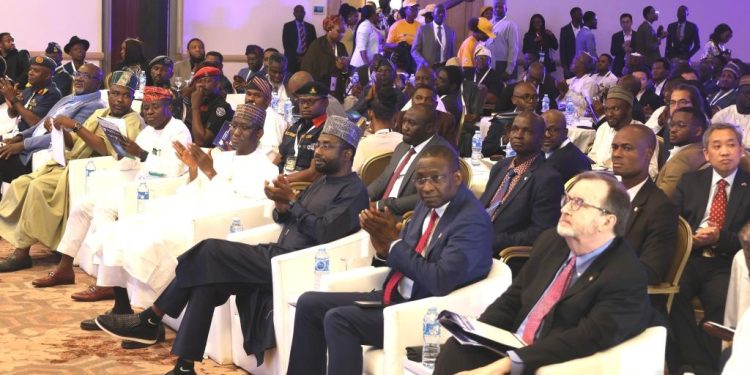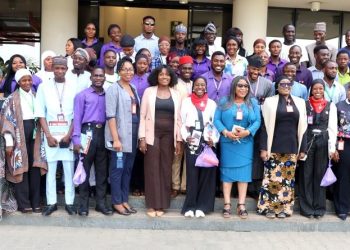By Nkechi Eze
The Executive Chairman of the Economic and Financial Crimes Commission (EFCC), Mr. Ola Olukoyede, has called for the strengthening of Nigeria’s cyber resilience architecture to protect the nation’s financial system from growing digital threats and fraudulent schemes.
Speaking on Wednesday, July 9, 2025, at the National Cyber Security Conference organised by the National Information Technology Development Agency (NITDA) in Abuja, Olukoyede stressed that cyber resilience is no longer optional but imperative for national security and economic stability.
In a statement signed by EFCC spokesperson Dele Oyewale, the anti-graft boss stated, “A secure digital future for Nigeria requires robust cyber resilience. Cyber resilience is not just about preventing attacks, it’s about ensuring that our systems, institutions, and society can withstand, adapt to, and rapidly recover from cyber incidents.”
He noted that Nigeria’s rapid digital transformation, especially in fintech, mobile banking, cryptocurrency, and e-commerce, has significantly advanced financial inclusion and economic growth. However, he warned that these developments have also widened the country’s vulnerability to cyberattacks, particularly within the financial ecosystem. “The financial ecosystem is particularly vulnerable, not only because of its centrality to the economy but also due to the high value of its data and assets,” he said.
Olukoyede emphasized that the EFCC has intensified efforts in recent years to tackle cyber threats through strategic interventions, including enhanced cyber forensic capabilities, disruption of criminal syndicates, and numerous arrests and convictions of cybercrime offenders.
He also highlighted the Commission’s expanding international collaborations with agencies such as INTERPOL, the FBI, the Royal Canadian Mounted Police (RCMP), and the UK’s National Crime Agency (NCA), among others, to address transnational cybercrime.
The EFCC chairman announced the imminent launch of a 24/7 Cybercrime Rapid Response Centre (E-C2R2), a citizen-driven complaint platform designed for swift reporting and resolution of cyber incidents. He also revealed plans to establish a Cybercrime Research Centre that would serve both investigative and rehabilitative functions.
“These initiatives are part of a deliberate effort to reclaim and protect our international image. Through intelligence sharing, legal cooperation, and multilateral engagements, we are helping to bring perpetrators to justice while supporting victims across borders,” Olukoyede said.
He called for strategic leadership in combating cyber threats, urging financial institutions to prioritize cybersecurity at the board level and dedicate sufficient resources to cyber defence. “Cyber resilience in the financial ecosystem cannot be built in silos,” he warned. “It demands deeper synergy between regulators, enforcement agencies, financial institutions, and civil society; continuous investment in infrastructure and human capital; and a coordinated national framework uniting all stakeholders.”
In his opening remarks, the Director General and CEO of NITDA, Kashifu Inuwa Abdullahi, described the conference as a movement towards building a more formidable digital defence system. He stressed that Nigeria’s digital future rests on the ability of institutions and stakeholders to develop unified, resilient, and adaptive cybersecurity mechanisms.
The high-level event was attended by top government officials including the National Security Adviser, Mallam Nuhu Ribadu; members of the National Assembly; members of the diplomatic community; and key actors in the nation’s tech and financial sectors.
















